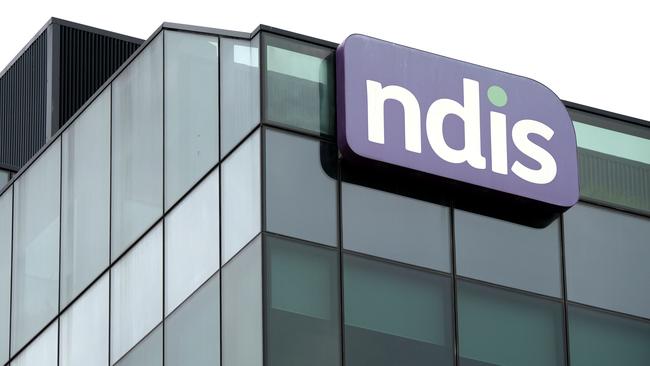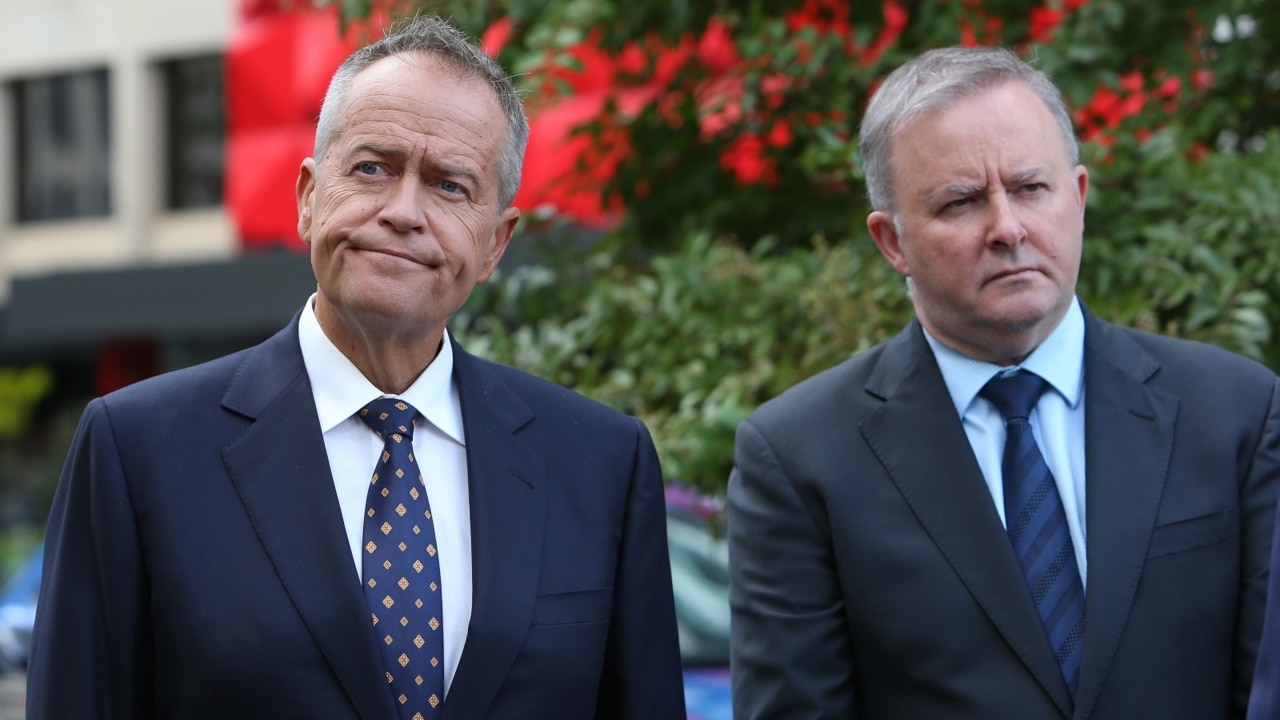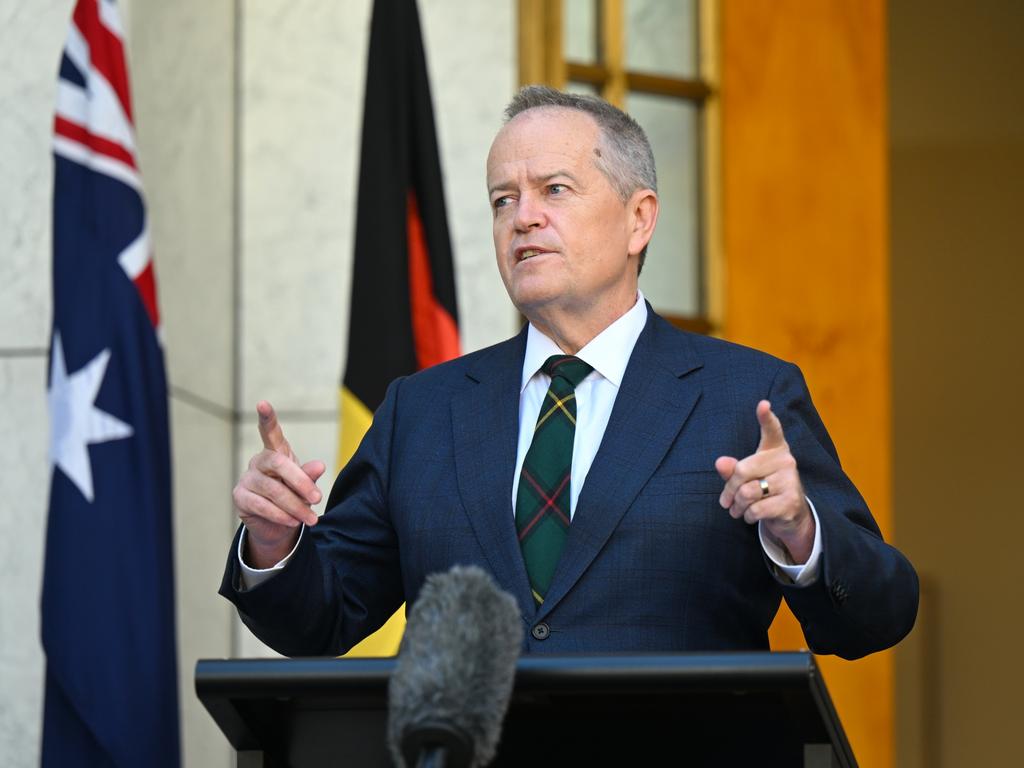Bill Shorten’s parting shot at shonky NDIS service providers
In one of his last major changes before he retires, the NDIS Minister will begin a major crackdown on rorting, abuse and the slapping of ‘wedding-tax’ style mark-ups on disability services.

Bill Shorten will start forcing the 150,000 NDIS providers operating without oversight to become registered in a major overhaul of the disability sector that seeks to crack down on rorting, abuse and the slapping of “wedding-tax” style mark-ups on disability services.
In one of the last major changes to be brought in by the NDIS Minister and former Labor leader before his retirement next February, Mr Shorten will begin the process of mandatory registration from next month for all of the 170,000 providers operating within the $40bn-a-year disability scheme.
And the nearly 200,000 NDIS participants who self-manage their plans, rather than using a support co-ordinator, could also face some kind of mandatory registration following further consultation with the sector.
Several disability advocates have raised alarm over the issue of forced registration because of its potential to limit participants’ “choice and control”, with concerns the changes could benefit the biggest companies that are able to take on such regulatory burden while pushing out smaller providers.
Mr Shorten revealed the move to complete registration would be done gradually, in line with the recommendations of an independent taskforce led by prominent human rights lawyer, Natalie Wade, which reported to government earlier this year.
Rather than registering all providers at the same time and imposing the same standards on each, the new model will begin only with the mandatory registration of online platforms that connect disabled people with NDIS providers, along with support coordinators who help manage a participants’ plan.
Providers that assist those with the most complex disabilities to live independently, also known as Supported Independent Living providers, would be registered at the same time.
“Through the NDIS Quality and Safeguards Commission and under the current registration model, I am progressing registration of platform providers … support co-ordinators, and providers of supported independent living,” Mr Shorten said.
“I am committed to progressing reform that strengthens risk-proportionate regulation to increase the quality and safety of NDIS supports.”

The consultation process will kick off month before the new set of “rules” on registration are drafted in December. States and territories will then be given a month to tick off on the proposed changes that will be implemented over an agreed-upon transition period.
Only about 16,000 providers in the NDIS are currently registered, leaving the NDIS Commission with limited oversight of the practices of the other 154,000, who have no mandatory reporting obligations.
And people self-managing their NDIS plans – who make up about 30 per cent of all 660,000 participants – are also not registered, despite being the ones employing and directing disability workers.
Following the mandatory registration of SIL providers, support co-ordinators and platform providers the government will consult on what to do about remaining NDIS providers and self-managed participants.
“Our initial consultations will focus on the taskforce recommendation for participants who self-direct their supports. The initial consultation will consider the definition of self-directed supports for the purpose of registration,” Mr Shorten said.
The move comes as the number of complaints and reportable incidents received by the disability agency continue to steadily rise, exploding by 80 per cent and 47 per cent respectively since 2023.
Acting NDIS Quality and Safeguards Commissioner Michael Phelan said registration would give the commission more power to crack down on shonky operators who were rorting millions from the scheme.
“To be registered, you’ve actually got to pass something like a character test. So you’ve got to (prove) that you are a suitable person to be registered to provide NDIS services,” Mr Phelan, the former Australian Institute of Criminology director, told The Australian.
“So we’d like to think that, with the extra diligence the Commission does (on registered providers) some people who shouldn’t be there, some bad actors, will self- select out, because we’ll have visibility on them.”
Mr Phelan said advocates concerned with the policy needed to know the registration process would “not going be what it is today”.
“Depending on … the level of risks of the services that someone’s providing, then the registration process will not be as onerous as what it is now. It’s not that it will be easy, but it simply won’t be as difficult as it is now to be able to get registered,” he said.
“Getting a full quality audit, which you’ve got to do now every two years to provide a service, there’s no way I’d want to that or that I think that’s appropriate for a sole trader who’s providing those very close supports in a non-high risk environment … because that would be drive people out of the market if we do that.”
He said that with the extra oversight mandatory registration would provide the Commission, quality would be improved and practices such as applying a “wedding tax” style mark-up to disability services and equipment could begin being stamped out.

Analysis by The Australian last year found examples of such mark-ups between NDIS approved items and those on the open market of more than 1000 per cent, with an NDIS approved folding walking stick costing $457, compared to $30 for a similar product sold online.
Mr Shorten vowed he would put an end to shonky providers who had extorted people with disabilities and rorted up to $2bn in taxpayer funds from the NDIS to spend on items including luxury cars, holidays and drugs.
The crack down on unregistered providers is a key part of the government’s aim to cut the annual growth of the scheme in half, down to 8 per cent a year, and save the budget $14bn over the next four years.
However, other elements of its plan to rein in spending on the scheme – particularly through a new system of mainstream supports for people with milder disabilities and an agreement from states and territories to increase their contribution to the NDIS – are yet to be finalised.
Despite backing the Commonwealth’s first tranche of NDIS legislation, WA Premier Roger Cook claimed states had “reluctantly” agreed to do so and that funding negotiations over foundational supports and other NDIS reforms were yet to even commence.
While the NDIS Review recommended that all providers be registered, a survey by advocacy group Every Australian Counts earlier this year found nearly 70 per cent of respondents disagreed or strongly disagreed with mandatory registration because of concerns around the impact to choice and control.
But chief executive of registered SIL-provider Life Without Barriers, Claire Robbs, said it was not “an either or” scenario when it came to ensuring participants still had choice and control and mandatory registration.
“Raising obligations and raising the accountability (for providers) changes the decision making of people who may choose to enter the disability market, and certainly people who want to stay in the disability market. So it’s really a message to providers to see if you want to come into this area, or you want to stay in this area … we’re going to hold you accountable,” she said.
Jordan O’Reilly, the co-founder of a platform provider that’s already registered called Hireup, said it was “totally reasonable” for organisations of Hireup’s size to conduct in-depth audits and rigorous complaints processes.
“It’s bizarre that the NDIS has run for over 10 years with such a patchy and inconsistent regulatory system where providers can choose if they want to be registered or not,” he said.
“Choice and control over your services and a sensible regulatory model for providers are not mutually exclusive. Done properly, they are mutually reinforcing.”






To join the conversation, please log in. Don't have an account? Register
Join the conversation, you are commenting as Logout